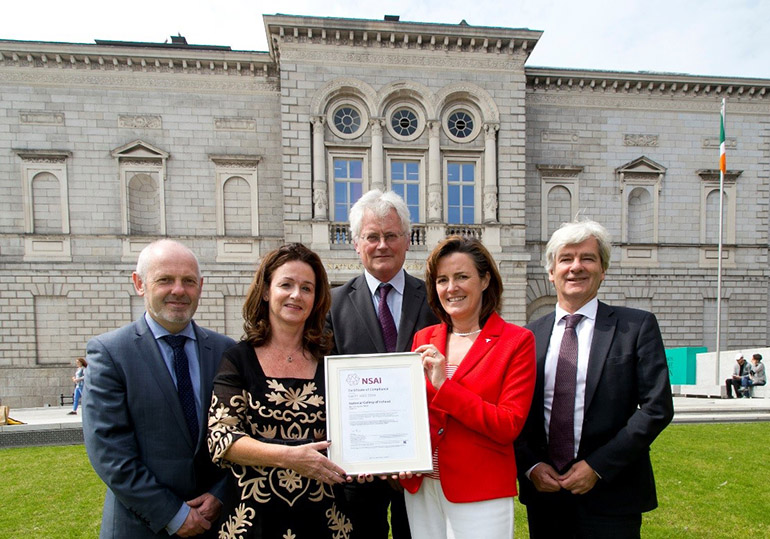
Governance
Governance overview
The Gallery was established by the National Gallery of Ireland Act 1854. Since then, there have been a number of subsequent amending Acts providing for the administration of the institution and further defining its functions, namely, the National Gallery of Ireland Acts (1854-1963) and the National Cultural Institutions Acts (1997-2023). Under its statutes, oversight of the affairs of the Gallery is entrusted to a Board of Governors and Guardians (the ‘Board’).
Registered Charities Number: 20003029
Charitable Tax Exemption Number: CHY2345
Charitable Purpose:
- Advancement of education
- Other purpose that is of benefit to the community
- Advancement of the arts, culture, heritage or sciences
- Integration of those who are disadvantaged, and the promotion of their full participation, in society
Charitable Objectives:
As set out in Section 60 - National Cultural Institutions Act, 1997:
- To increase and diffuse in or outside the State knowledge of the visual arts by whatever means they consider appropriate.
- To engage in such activities for the purpose of raising funds for the purposes of the National Gallery as they think appropriate.

SWiFT 3000 Accreditation
We aim to maintain best standards in corporate governance. In 2017, the Gallery obtained accreditation from the National Standards Authority of Ireland (NSAI) under SWiFT 3000:2010 – Certificate of Compliance with the Code of Practice for Corporate Governance in Ireland. This significant achievement results in us being the first cultural institution in Ireland to gain such certification, and was the first such certification granted under the Code of Practice for the Governance of State Bodies (2016). The Gallery continues to maintain this accreditation.
Museum Standards Programme for Ireland
The National Gallery of Ireland has been accredited under the Museum Standards Programme for Ireland since 2007. In 2024, the latest maintenance assessment took place. Its focus was on our significant achievements since the Gallery’s re-opening in 2017 following the completion of Phase 3 of the Millennium Development Plan, and the adaptations made to our activities during a period of unforeseen closure in response to the Covid-19 pandemic.
Triple Lock Standard
Since 2022, the National Gallery of Ireland has been awarded the Triple Lock Standard from the Charities Institute of Ireland (CII). This standard recognises over 100 charities who have achieved excellence in governance, financial reporting, transparency and ethical fundraising. We are delighted to be the first National Cultural Institution to receive this accreditation. To achieve this standard we:
- Prepare our annual report and financial statements in full Compliance with the Charity SORP (Statement of Recommended Practice under FRS102) and make these easily available to the public on our website
- Formally adopted the ‘Charities Governance Code’ as devised by the Charities Regulator
- Formally adopted the ‘Guidelines for Charitable Organisations on Fundraising from the Public’
This standard provides assurance to our donors, stakeholders and the general public of the our commitment to excellence.
-

Public Sector Duty at the National Gallery of Ireland
Read about our commitment to the Public Sector Equality and Human





